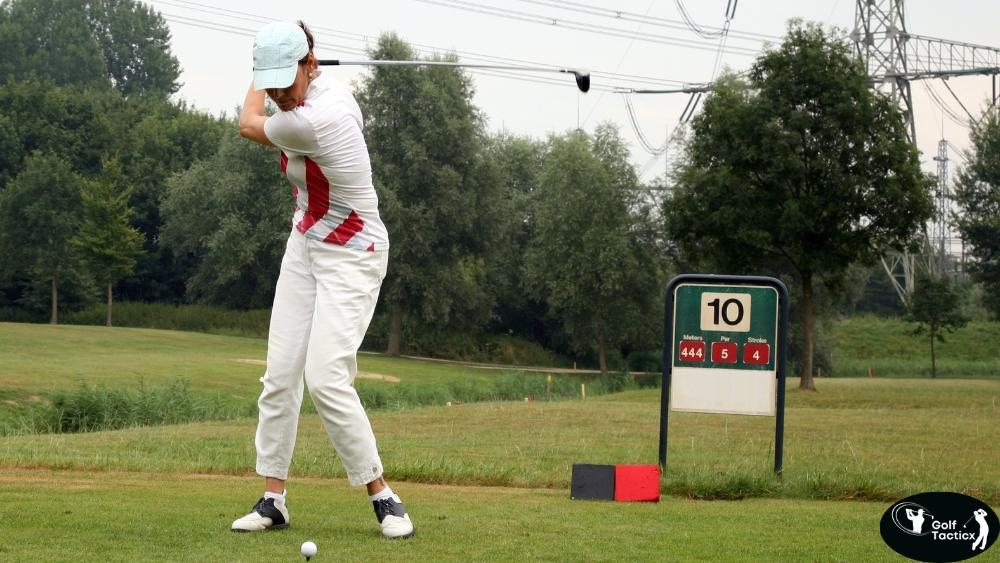In the previous post, we discussed How to Master Golf Tournament Play, covering key strategies to boost your confidence and performance under pressure.
Getting ready for a golf competition can feel exciting and a little stressful. To play your best, it’s important to prepare the right way. That’s why I’ve put together these Golf Training Tips Before Competition to help you feel confident and ready.
Whether you’re a beginner or a skilled player, the right practice can make a big difference. From warming up properly to focusing on your short game, small improvements can lead to better results on the course. In this post, I’ll share simple and helpful Golf Training Tips Before Competition that you can follow easily.
These tips will help you stay calm, focused, and ready to swing with confidence when the big day arrives. Let’s get started and make sure your next round is your best one yet.
Assess Your Current Skill Level
Before designing your practice routine, evaluate your strengths and areas for improvement. Reflect on recent rounds and identify aspects of your game that need attention. This self-assessment will help you focus your practice on areas that will yield the most significant improvements.
Set Clear, Achievable Goals
Establish specific, measurable, attainable, relevant, and time-bound (SMART) goals for your practice sessions. For example:
Short-Term Goal: Improve putting accuracy from 5 feet to 90% over the next two weeks.
Long-Term Goal: Increase average driving distance by 10 yards within a month.
Clear goals provide direction and motivation, making your practice sessions more purposeful.
Structure Your Practice Sessions
Organize your practice time to cover all essential aspects of the game. A balanced routine ensures comprehensive development. Here’s a sample breakdown for a 90-minute practice session:
Warm-Up (10 minutes): Begin with light stretching and dynamic movements to prepare your muscles.
Short Game (30 minutes):
Putting (15 minutes): Focus on putts within 10 feet, emphasizing consistency and speed control.
Chipping and Pitching (15 minutes): Practice various lies and distances around the green.
Full Swing (40 minutes)
- Irons (20 minutes): Work on ball striking and shot shaping.
- Woods and Driver (20 minutes): Concentrate on accuracy and distance.
- Cool Down (10 minutes): Conclude with light stretching to aid recovery.
Incorporate Skills Challenges
Engage in skills challenges to make practice more engaging and to simulate on-course scenarios. For instance:
20/20/20 Drill: Spend 20 minutes on putting, 20 minutes on wedge play, and 20 minutes on full swings. This balanced approach ensures comprehensive skill development.
Range Challenges: Set targets at varying distances and aim to hit them with different clubs, tracking your success rate.
Focus on the Short Game
The short game often determines the outcome of a round. Dedicate ample time to chipping, pitching, and putting. For example, allocate 30 minutes to practice chipping from different lies and distances, followed by 30 minutes of putting drills.
Simulate Tournament Conditions
Practice under conditions similar to those you’ll face in a competition:
Play Mock Rounds: Simulate a tournament round by playing 9 or 18 holes, adhering to the rules and pace of play.
Time Your Shots: Implement shot clocks to mimic the pressure of tournament play.
Incorporate Physical Fitness
Physical fitness enhances your performance and reduces the risk of injury. Include exercises that improve flexibility, strength, and endurance. For example, incorporate core-strengthening exercises and cardiovascular workouts into your weekly routine.
Utilize Technology
Leverage technology to gain insights into your game:
Launch Monitors: Use devices to measure swing speed, ball speed, and launch angle.
Swing Analysis Apps: Analyze your swing mechanics to identify areas for improvement.
Maintain Consistency
Consistency is key to improvement. Stick to your practice schedule and make adjustments as needed based on your progress and upcoming competition dates.
Seek Professional Guidance
Consider working with a golf instructor to receive personalized feedback and guidance. Professional coaching can provide valuable insights and accelerate your development.
Sample Weekly Practice Plan
Here’s a sample weekly practice plan to guide your preparation:
| Day | Focus Area | Duration |
| Monday | Short Game (Putting) | 1 hour |
| Tuesday | Full Swing (Irons) | 1 hour |
| Wednesday | Short Game (Chipping) | 1 hour |
| Thursday | Full Swing (Woods) | 1 hour |
| Friday | Physical Fitness | 1 hour |
| Saturday | Mock Round | 18 holes |
| Sunday | Rest and Recovery | – |
Adjust this plan based on your schedule and specific needs.
Review and Adjust
After each practice session, reflect on what went well and what needs improvement. Adjust your routine accordingly to address any weaknesses and reinforce strengths.
By following these steps and maintaining a disciplined approach, you’ll develop a practice routine that enhances your skills and prepares you effectively for upcoming competitions. Remember, quality and consistency in practice are more important than quantity.
Conclusion
Getting ready for a tournament doesn’t have to be stressful if you follow the right steps. By using these Golf Training Tips Before Competition, you give yourself the best chance to play well and enjoy the game. Remember to stay relaxed, trust your practice, and focus on each shot. With the right mindset and preparation, you’ll feel confident when you step onto the course. Stick to your routine, believe in your skills, and you’ll be ready to perform at your best.
Stay tuned for our next blog post, where we’ll discuss How To Compete With Better Golfers.
















Leave a Reply